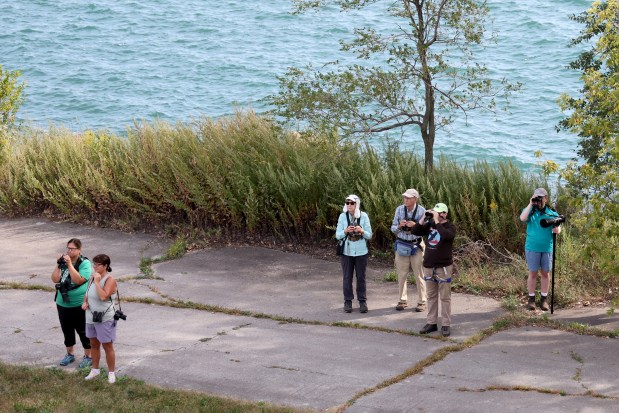Despite pushback from some aldermen, the Geneva City Council approved a new tax increment financing district for nearly 300 acres on the far southeast side of the city at a special meeting on July 8.
The district contains around 20 parcels of land and is roughly bounded by Roosevelt Road, Fabyan Parkway, Kirk Road and the border between DuPage and Kane counties. A 211-acre industrial park development by Midwest Industrial Funds, which was approved by the Geneva City Council on June 17, will make up the majority of the district.
The district comes out of the city’s 2012 Southeast Master Plan, which identified tax increment financing as a key funding source for the plan, according to the Monday meeting’s agenda. At that meeting, aldermen voted 7-3 in favor of the district.
Tax increment financing, also known as TIF, districts are allowed under state law to encourage development of areas where development would otherwise not be financially viable.
When growth takes place in a TIF district, the extra taxes that come from that growth are placed into a special fund instead of being distributed among all taxing bodies during the district’s duration. The money in that special fund can then be used by a local government to pay costs associated with the development within the TIF district, such as creating or improving public infrastructure.
Aldermen in favor of the TIF district said it would help to encourage private development in the area, which has not seen any new development in years, and would help fund an extension of Kautz Road from Route 38 to Fabyan Parkway that is needed for development to take place.
The district could end up raising as much as $185 million, which represents the upper limit of how much the city could put into the special fund from the extra tax money generated in that district over its 23-year lifetime, according to the TIF district plan.
Property assembly, site preparation costs and the public works construction or improvement costs would likely get the most funding from the TIF money, up to a combined $172 million, the plan shows.
There are several requirements that areas must meet before they may be designated a TIF district, and some Geneva aldermen said they did not believe that the Southeast Master Plan TIF District area met those requirements.
Those three aldermen — Becky Hruby, Dean Kilburg and Robert Swanson — took issue with a report by economic development consulting firm SB Friedman, the city’s TIF consultants.
That report found the area was eligible for a TIF district because private developers are unlikely to develop the area without public assistance and the area is considered “blighted” because of a lack of growth in property value and because it contributes to flooding downstream, among other reasons.
A letter written and sent to the city by Jack Bentley, executive director of the Citizen Advocacy Center, where he is also a community lawyer, also disagreed with SB Friedman’s report and echoed many of the three aldermen’s concerns.
Bentley said in the letter that several Geneva residents brought the issues to his attention, and that the Citizen Advocacy Center “urges the Geneva City Council to reject or postpone the approval” of the TIF district until the issues were addressed.
One of the major concerns of Bentley and the three aldermen was the report’s finding of flooding on the property.
Bentley’s letter said that a report from engineering firm V3, which was cited in the SB Friedman report, gave no evidence to support its claims of flooding on the property. It also contradicts the Kane County Assessor’s 0% flooding designation, according to the letter.
The V3 report, however, said that runoff from the property contributes to flooding downstream, not that the area itself floods. Further development in the area would make downstream flooding worse, and so stormwater infrastructure should be included in development within the TIF to offset this flooding, according to the report.
The opposing aldermen and Bentley said the SB Friedman report was wrong again when it stated that development in the area was unlikely “but for” public assistance through the TIF district.
“There’s development occurring to the north, to the east, to the west and to the south,” Swanson said. “In fact, the 55 acres that are adjacent to the property are being developed without TIF financing.”
Ald. Craig Maladra, who was in favor of the TIF district, said that the area was not developed within the last 20 years, and so likely it would not be developed in the next 20 years without city assistance.
Both Kilburg and Swanson said they were concerned that the TIF district would be used primarily to support the creation of warehouses, which Kilburg said could block other more desirable industrial developments. Warehouses were not a part of the city’s long-term plan for that area, according to Swanson.
Bentley’s letter also said the area was not legally able to be called “vacant,” which the area was determined by the SB Friedman report to be, because it has been farmed within the past five years. A tree study, as required by Geneva city code, was also not adequately completed, the letter said.
Geneva Mayor Kevin Burns said Bentley’s letter was full of “tax increment financing tropes” and “wanting of any defensible accusations.”
“Respectfully, the letter in question is meritless and should be given no weight, granted no measure and allowed no impact on our considerations,” he said.
Other aldermen, including Anais Bowring, said those opposed to the TIF district were calling into question the city’s decision-making process and the expertise of the city’s staff and outside professionals.
“I would just encourage my colleagues to consider that, is any one particular issue worth maligning our staff, our process and the rest of us sitting on this council?” Bowring asked. “To me, it’s not worth it.”
rsmith@chicagotribune.com




